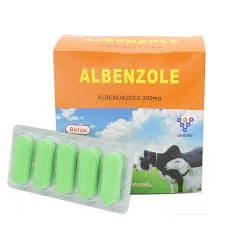- Afrikaans
- Albanian
- Amharic
- Arabic
- Armenian
- Azerbaijani
- Basque
- Belarusian
- Bengali
- Bosnian
- Bulgarian
- Catalan
- Cebuano
- Corsican
- Croatian
- Czech
- Danish
- Dutch
- English
- Esperanto
- Estonian
- Finnish
- French
- Frisian
- Galician
- Georgian
- German
- Greek
- Gujarati
- Haitian Creole
- hausa
- hawaiian
- Hebrew
- Hindi
- Miao
- Hungarian
- Icelandic
- igbo
- Indonesian
- irish
- Italian
- Japanese
- Javanese
- Kannada
- kazakh
- Khmer
- Rwandese
- Korean
- Kurdish
- Kyrgyz
- Lao
- Latin
- Latvian
- Lithuanian
- Luxembourgish
- Macedonian
- Malgashi
- Malay
- Malayalam
- Maltese
- Maori
- Marathi
- Mongolian
- Myanmar
- Nepali
- Norwegian
- Norwegian
- Occitan
- Pashto
- Persian
- Polish
- Portuguese
- Punjabi
- Romanian
- Russian
- Samoan
- Scottish Gaelic
- Serbian
- Sesotho
- Shona
- Sindhi
- Sinhala
- Slovak
- Slovenian
- Somali
- Spanish
- Sundanese
- Swahili
- Swedish
- Tagalog
- Tajik
- Tamil
- Tatar
- Telugu
- Thai
- Turkish
- Turkmen
- Ukrainian
- Urdu
- Uighur
- Uzbek
- Vietnamese
- Welsh
- Bantu
- Yiddish
- Yoruba
- Zulu
Nov . 26, 2024 22:28 Back to list
Dosage Recommendations for Albendazole Treatment in Goats for Effective Health Management
Albendazole for Goats Dosage Guidelines and Best Practices
Albendazole is a broad-spectrum anthelmintic medication widely used in veterinary medicine to treat various parasitic infections in livestock, including goats. It is particularly effective against gastrointestinal worms, lungworms, and some species of flukes. Understanding the appropriate dosage and administration of albendazole is essential for goat farmers to maintain herd health and ensure optimal productivity.
Understanding Albendazole
Albendazole belongs to the benzimidazole class of anti-parasitic drugs. It works by interfering with the parasites' ability to absorb glucose, ultimately leading to their energy depletion and death. This mechanism makes it a valuable tool in controlling parasitic infections that can significantly affect the health and productivity of goats.
Indications for Use
Albendazole is primarily indicated for the treatment of - Nematodes (roundworms) - Cestodes (tapeworms) - Trematodes (flukes) - Protozoan infections such as giardiasis
Goats are particularly susceptible to parasites, especially in areas with high stocking densities or poor pasture management. Regular deworming with albendazole helps prevent infestations, which can lead to poor growth rates, weight loss, and, in severe cases, death.
Dosage Guidelines
The common dosage of albendazole for goats is typically around 5 mg/kg of body weight, administered once. However, dosage may vary based on the specific formulation of the drug, the weight of the animals, and the type of parasites being treated. It is crucial to accurately weigh each goat to ensure proper dosing. Overdosing can lead to toxic effects, while underdosing may not effectively eliminate the parasites.
For practical application 1. Calculate the weight of the goat in kilograms. 2. Multiply the weight by the recommended dosage (5 mg/kg). For instance, a 50 kg goat would require 250 mg of albendazole. 3. Ensure to use a proper measuring device for accurate dosing.
albendazole for goats dosage

Administration
Albendazole is usually available in oral forms, such as paste, suspension, or tablet forms. When administering the medication - Follow the manufacturer’s instructions on storage and handling. - Administer the dose directly into the goat's mouth for maximum efficacy. - Ensure the goat swallows the medication and monitor for any adverse reactions.
Timing and Frequency
The timing of administration can significantly impact the effectiveness of albendazole. It is often recommended to - Deworm goats in the spring before the breeding season and in the fall after kidding. - Regularly check for signs of parasitic infections, such as weight loss, diarrhea, or poor coat condition.
In some cases, it may be necessary to repeat the treatment after a certain period to ensure that all parasites are eliminated, particularly if reinfestation is a concern. Consulting with a veterinarian regarding the frequency of treatment can help establish an effective deworming protocol.
Monitoring and Follow-Up
After administering albendazole, monitoring the goats for any side effects is essential. While most goats tolerate albendazole well, some may experience mild gastrointestinal upset or transient lethargy. Severe reactions are rare but may occur; hence, farmers should seek veterinary assistance if they notice any unusual symptoms.
Additionally, follow-up fecal examinations can be beneficial in assessing the effectiveness of the treatment. These tests can reveal whether the parasite load has decreased and help inform future deworming strategies.
Conclusion
Albendazole is a vital part of parasite management in goat farming, contributing significantly to the overall health and productivity of the herd. By adhering to recommended dosage guidelines, proper administration techniques, and scheduling regular deworming protocols, goat farmers can minimize the impact of parasitic infections. Always consult with a veterinarian for tailored advice and to ensure the best practices are being followed for the specific needs of your goats. Effective parasite control will lead to healthier animals and a more productive farming operation.
-
Guide to Oxytetracycline Injection
NewsMar.27,2025
-
Guide to Colistin Sulphate
NewsMar.27,2025
-
Gentamicin Sulfate: Uses, Price, And Key Information
NewsMar.27,2025
-
Enrofloxacin Injection: Uses, Price, And Supplier Information
NewsMar.27,2025
-
Dexamethasone Sodium Phosphate Injection: Uses, Price, And Key Information
NewsMar.27,2025
-
Albendazole Tablet: Uses, Dosage, Cost, And Key Information
NewsMar.27,2025













